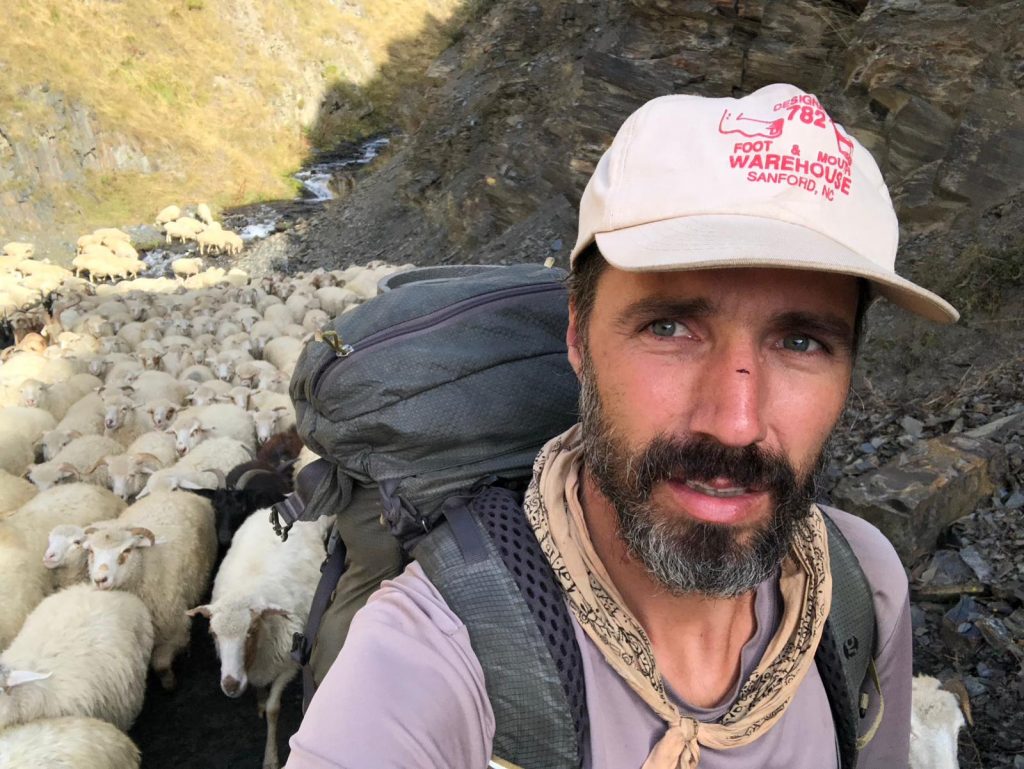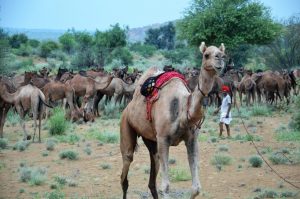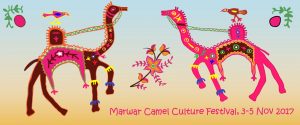
Pastoralists present a statement to Dr DK Sadana, Director of the National Bureau of Animal Genetic Resources |
Lobbying by LIFE-Network India, an alliance of NGOs (including LPPS) and pastoralist groups, is beginning to bear fruit as policy changes that benefit indigenous livestock and rural livelihoods. For example, the scope of the Recognition of Forest Rights Bill 2005, that originally only gave rights to forest-dwelling tribes, was expanded to include the grazing rights of nomadic and settled pastoralist communities in forests. This legislation was passed by parliament on 7 December, 2006. The National Draft Policy on Farmers emphasises the close relationship between livestock keeping, sustainable livelihoods, and access to grazing land. It spells out the need for securing pastoralists’ forest grazing rights, including in national parks and other protected areas. An increasing number of Indian government actors are starting to take notice of the role of pastoralists as custodians of livestock breeds and their role on conserving biodiversity. Further details |
Archive for 2007
 |
Conserving animal biodiversity and creating rural employment can go hand in hand – an Indian NGO is showing the way. Camels are part of the past? Not according to Lokhit Pashu-Palak Sansthan. LPPS is running a project to boost the value of camel products such as milk and ice cream. Camel milk, the “white gold of the desert”, is highly nutritious and is used traditionally to treat tuberculosis and typhoid. According to scientists, it may also have a positive effect on patients with HIV/AIDS, cancer and Alzheimer’s disease. Further details |
 |
Pastoralists and other livestock keepers should have the right to participate in formulating national policies. That was one of the conclusions of a workshop on Pastoralists, Livestock Keepers Rights and Animal Genetic Resources, on 24 to 26 February 2007. Around 100 pastoralists from all over India attended the workshop in Sadri, Rajasthan, along with delegations from Mongolia, Iran and the Philippines. The workshop also demanded official recognition for pastoralists as custodians of animal genetic resources. Their mobile way of life and their traditional rights to use forest lands and other natural resources must be protected, said participants. An international meeting followed immediately after the national workshop. Participants from Bangladesh, China, Germany, India, Iran, Mongolia, Sri Lanka, Sudan, Thailand, the UK and Vietnam, along with the Food and Agriculture Organization of the United Nations, clarified the concept of Livestock Keepers’ Rights. This a bundle of rights and recommendations for strengthening the role of livestock keepers in animal genetic resource management. Issues discussed included:
Report from the two meetings: |
 |
The LIFE Network will host an international workshop on “Livestock Keepers and the Management of Animal Genetic Resources: Roles, Rights, and Responsibilities” in Sadri, Rajasthan, India, on 26-28 February 2007. Registration and accommodation are free, but participants must cover their own expenses. The organizers may be able to provide assistance in certain cases. Further information: The LIFE Network supports community-based conservation of animal genetic resources and seeks to strengthen rural livelihoods through the development of indigenous livestock breeds and species. See www.lifeinitiative.net for more. |


 326 kb
326 kb


